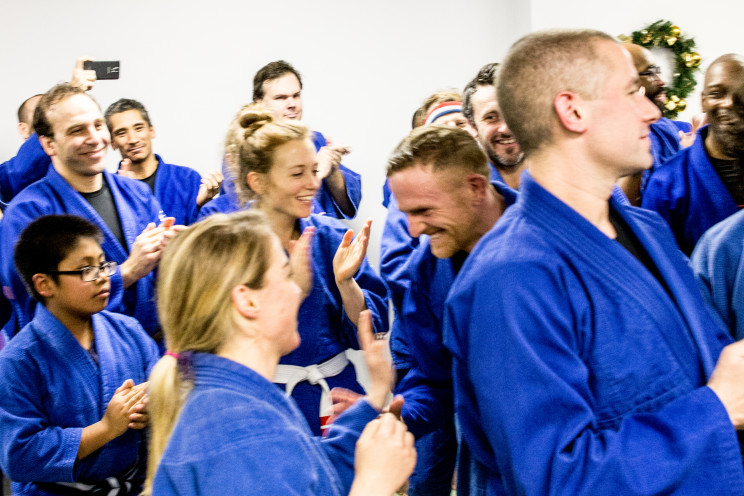The title “coach” for an instructor or assistant instructor in the Jiu-Jitsu community might actually be a misnomer. It runs the risk of minimizing the relationship between the senior and the junior on the mat. I can understand that if you’re doing cross-fit or some sport maybe someone would be a coach, but it lacks the subtlety and depth of experience of the martial arts. To my ears it encourages an unnecessarily adolescent approach to the senior role in Jiu-Jitsu.
In truth, I have never understood “coach” in jiu-jitsu and often am embarrassed whenever I hear it in a dojo. Hearkening back to the traditional Japanese martial arts experience, in the classroom with Mr. Miyazaki or Mr. Shiina, there was no coaching – even though there was certainly invaluable assistance from the senior students.

In the martial arts the sempai or “coach” role has an everlasting quality to it. Not just because the athlete is reminiscent of how the coached pushed them to win the big game so many years ago, but because the senior student lifted the junior student up on their shoulders and kept them there.
I think if I could, I would encourage the Jiu-Jitsu community to embrace the “sempai” title or the “sensei” title or the “teacher” title for for anybody actively participating in the senior student role. Sempai is literally the “mentor”, a word in English which implies a much more distinguished experience for both parties. There is a depth to that label which doesn’t come across when you call someone “coach”.
Again, the experience in the dojo with Miyazaki-sensei and Shiina-sensei was made more profound, more powerful, by the sempai. I don’t think it would have been able to happen that way with a “coach”.
Names, as we all know, do actually mean something. It’s my contention that “coach” diminishes both practitioners’ responsibility, and it’s not an accurate description of what is happening. We’re not we’re not coaching one another, really – we’re leading by example and we’re helping one another up. The “sempai” and “kohai” (or junior student) development has to continue together, concurrently, so no one can stop learning and growing and just rest on their laurels.
Moreover, the implication of the title “coach” in my mind is that it’s for a short period of time – that the person is available to coach or to be coached until they’re done with their activity. But in the martial arts the sempai or “coach” role has an everlasting quality to it. Not just because the athlete is reminiscent of how the coached pushed them to win the big game so many years ago, but because the senior student lifted the junior student up on their shoulders and kept them there. It’s where they reside forever, so it becomes a much more profound relationship.
This idea pertains to the the Jiu-Jitsu community because it has become a trend there, but I believe every martial art experience would benefit from deepening the “coach” role. As with most trends, it bears scrutinizing. Just because everybody’s doing it doesn’t make it the best option. It wasn’t so long ago that we were killing each other with rocks, too, and we’ve managed to evolve.
This is a critical question, a consideration of what we are doing and where we are heading in Jiu-Jitsu as we look twenty or thirty years into the future. What would be possible if we began to elevate the relationships between students together on the mat, starting with the words we use?
Learn more about our work by visiting www.brooklynbjj.com.